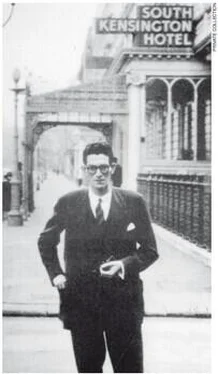Ben Macintyre - A Spy Among Friends
Здесь есть возможность читать онлайн «Ben Macintyre - A Spy Among Friends» весь текст электронной книги совершенно бесплатно (целиком полную версию без сокращений). В некоторых случаях можно слушать аудио, скачать через торрент в формате fb2 и присутствует краткое содержание. Год выпуска: 2014, ISBN: 2014, Издательство: Bloomsbury Publishing, Жанр: Старинная литература, на английском языке. Описание произведения, (предисловие) а так же отзывы посетителей доступны на портале библиотеки ЛибКат.
- Название:A Spy Among Friends
- Автор:
- Издательство:Bloomsbury Publishing
- Жанр:
- Год:2014
- ISBN:9781408851746
- Рейтинг книги:5 / 5. Голосов: 1
-
Избранное:Добавить в избранное
- Отзывы:
-
Ваша оценка:
- 100
- 1
- 2
- 3
- 4
- 5
A Spy Among Friends: краткое содержание, описание и аннотация
Предлагаем к чтению аннотацию, описание, краткое содержание или предисловие (зависит от того, что написал сам автор книги «A Spy Among Friends»). Если вы не нашли необходимую информацию о книге — напишите в комментариях, мы постараемся отыскать её.
A Spy Among Friends — читать онлайн бесплатно полную книгу (весь текст) целиком
Ниже представлен текст книги, разбитый по страницам. Система сохранения места последней прочитанной страницы, позволяет с удобством читать онлайн бесплатно книгу «A Spy Among Friends», без необходимости каждый раз заново искать на чём Вы остановились. Поставьте закладку, и сможете в любой момент перейти на страницу, на которой закончили чтение.
Интервал:
Закладка:
Philby landed at the very airport from which, two years earlier, the luckless and insensible Konstantin Volkov had been flown to his death. He rented a villa in Beylerbeyi, on the shores of the Bosphorus, installed his growing family and then, armed with Elliott’s introductions, slipped easily into the spy society of Istanbul. He even inherited the services of Elliott’s best man, Roman Sudakov, ‘a white Russian of boundless charm and appalling energy’ in Philby’s estimation. The Turkish authorities, when adequately bribed, still allowed foreign intelligence agencies ‘a fairly free hand to spy, so long as they didn’t spy on Turkey’. Over the next two years, Philby and his five deputies liaised with the Turkish security services, cultivated exiles, trailed for defectors, coordinated British agents and conducted a topographical survey of the Turkish frontier with the Soviet Union – a possible target of invasion in the event of war. But his first priority was to try to infiltrate agents into the USSR along a broad front, into the Caucasus, Ukraine, the Crimea, Georgia, Armenia and Azerbaijan. MI6 believed that Soviet Armenia and Soviet Georgia, in particular, were ripe for subversion. Hundreds of Georgian and Armenian émigrés had fled communism to settle in Beirut, Paris and other Western cities; if the right candidates could be found, trained and then slipped across the borders, these insurrectionists might form the kernel of a counter-revolutionary cell that could ‘start weaving a spy network’, foment rebellion against the communist government, recruit local allies and eventually roll back the Red tide. That, at least, was the theory. Such infiltrations would loom ever larger in the thinking of MI6 and the CIA in coming years, as the policy of ‘roll-back’ became intelligence orthodoxy. Philby was an ‘energetic enthusiast’ for this policy of war by proxy within the Soviet Union. He found his new assignment fascinating. So did Moscow.
Philby did not make direct contact with Soviet intelligence in Istanbul. Instead, he sent whatever information he gleaned to Guy Burgess, now working at the Foreign Office, who passed it on to the Soviets. With one hand Philby set up infiltration operations, and with the other he unpicked them. Moscow knew exactly what to do with Philby’s information: ‘We knew in advance about every operation that took place, by air, land or sea, even in the mountainous and inaccessible regions.’
Angleton was also moving on, and up. The Central Intelligence Agency was formally established in September 1947. Three months later, after three years in Rome, Angleton returned to Washington to take up a new role in the Office of Special Operations (OSO), with responsibility for espionage and counter-espionage. Reunited with his long-suffering wife and their young son, Angleton set up home in the Virginia suburbs, and on New Year’s Eve he formally applied to join the CIA, the intelligence organisation he would serve, shape and dominate for almost three decades.
The OSO was the intelligence-gathering division within the fledgling CIA, and from here Angleton began to carve out his own empire, working day and night, driving himself, his colleagues and his secretaries with manic determination. He started in a small office, with a single secretary; within a year he had been promoted, rated ‘excellent’, and awarded a pay rise and a much larger office; two years later he was deploying six secretaries and assistants, and amassing a vast registry of files on the British model, which would become ‘the very mechanism through which the CIA organised the secret war against the Soviet Union’. As that war expanded, so did Angleton’s power. ‘He was totally consumed by his work. There was no room for anything else,’ said his secretary. At weekends he fished, usually alone, or tended his orchids. Astonishingly, Cicely not only put up with his peculiarities, but loved him for them. ‘We rediscovered each other,’ she recalled. For all his eccentricities, there was something deeply romantic about the gaunt-faced, half-Mexican, hard-drinking poet-spy who cultivated his secrets, in private, like the rarest blooms.
If the Angletons’ marriage was now on firmer ground, that of the Philbys, outwardly so solid, was beginning to come apart. Aileen Philby had become convinced that her husband was having an affair with his secretary, Edith Whitfield, who was young, pretty, and a friend of Guy Burgess, whom Aileen deeply disliked. As he had in London, Philby would sometimes disappear overnight without warning or explanation. On his trips around the country, Edith always accompanied him. Aileen’s suspicions, almost certainly justified, tipped her into deeper depression. She became seriously ill. Secretly, she injected herself with urine, causing her body to erupt with boils. Her health became so precarious that after ten months in Istanbul, she had to be hospitalised. While in the clinic she was badly burned, after a fire mysteriously started in her bedroom.
Aileen was back in Beylerbeyi, and seemed to be recovering, when Philby arrived home one evening and announced with a grin: ‘I’ve got sitting in my Jeep outside one of the most disreputable members of the British Foreign Office.’ Guy Burgess had arrived, unannounced, for a holiday. He would stay for almost a month. The two old chums and fellow spies painted the town a deep shade of red, with Edith Whitfield in tow. In a single evening at the Moda Yacht Club, they polished off fifty-two brandies. At the end of the evening Burgess could be heard singing, to the tune of Verdi’s ‘La Donna è Mobile’:
Little boys are cheap today
Cheaper than yesterday
Small boys are half a crown
Standing up or lying down
Excluded from the revelries, deeply suspicious, and upset by the presence in her home of this drunken reprobate to whom her husband seemed so deeply attached, Aileen was heading for complete breakdown.
Philby did not seem unduly concerned, or even aware of the impending crisis. He was the same charming, cheerful figure, roué enough to raise the eyebrows of the more strait-laced members of the diplomatic fraternity, but not nearly so wicked as to damage his career prospects in the secret service. In the eyes of MI6, ‘He was both efficient and safe.’ And besides, he was doing important work, taking the fight to the Reds, even if the results of his efforts to penetrate the Soviet Union were proving less than successful.
A meeting in Switzerland (probably arranged by Elliott), with a Turk representing a number of exiled groups from Georgia and Armenia, secured a verbal agreement that MI6 would be ‘willing to back them with training and finance’ if the émigrés could furnish suitable counter-revolutionaries. But finding the right people to foment rebellion behind the Iron Curtain was proving tricky: many had been born abroad, or exiled for so long they barely knew their native countries, while others were tainted by association with Nazi efforts to destabilise the USSR during the war. Philby originally envisaged sending half a dozen groups of five or six ‘insurrectionists’ into Soviet Georgia and Soviet Armenia for several weeks at a time. Finally, among the exiled Georgian community in Paris, just two candidates were selected: ‘energetic lads’ aged twenty, who were ready to undertake this mission to a homeland neither had ever seen. One was called Rukhadze; the name of the other has never been discovered.
The two young men were trained in London for six weeks and then despatched to Istanbul, to be met by Philby. The operation, codenamed ‘Climber’, was a ‘tip-and-run’ exercise, an exploratory foray to assess the possibilities of mounting a rebellion in Georgia: the two agents would establish communication lines with potential anti-communist rebels, and then slip across the border back into Turkey. The young men struck Philby as ‘alert and intelligent’, convinced they were striking a blow to liberate Georgia from Soviet oppression. One of them, however, perhaps realising he faced certain death if caught, seemed ‘notably subdued’. The party travelled to Erzurum in Eastern Turkey, where Philby bustled around briefing the two agents, and issuing them with weapons, radio equipment and a bag of gold coins. ‘It was essential I should be seen doing everything possible to ensure the success of the operation,’ he later wrote. He had, of course, ensured exactly the opposite. The spot chosen for the infiltration was Posof, in the far northeast of Turkey on the border with Georgia. In the dead of night, the pair were taken to a remote section of the frontier, and slipped into Soviet territory.
Читать дальшеИнтервал:
Закладка:
Похожие книги на «A Spy Among Friends»
Представляем Вашему вниманию похожие книги на «A Spy Among Friends» списком для выбора. Мы отобрали схожую по названию и смыслу литературу в надежде предоставить читателям больше вариантов отыскать новые, интересные, ещё непрочитанные произведения.
Обсуждение, отзывы о книге «A Spy Among Friends» и просто собственные мнения читателей. Оставьте ваши комментарии, напишите, что Вы думаете о произведении, его смысле или главных героях. Укажите что конкретно понравилось, а что нет, и почему Вы так считаете.












